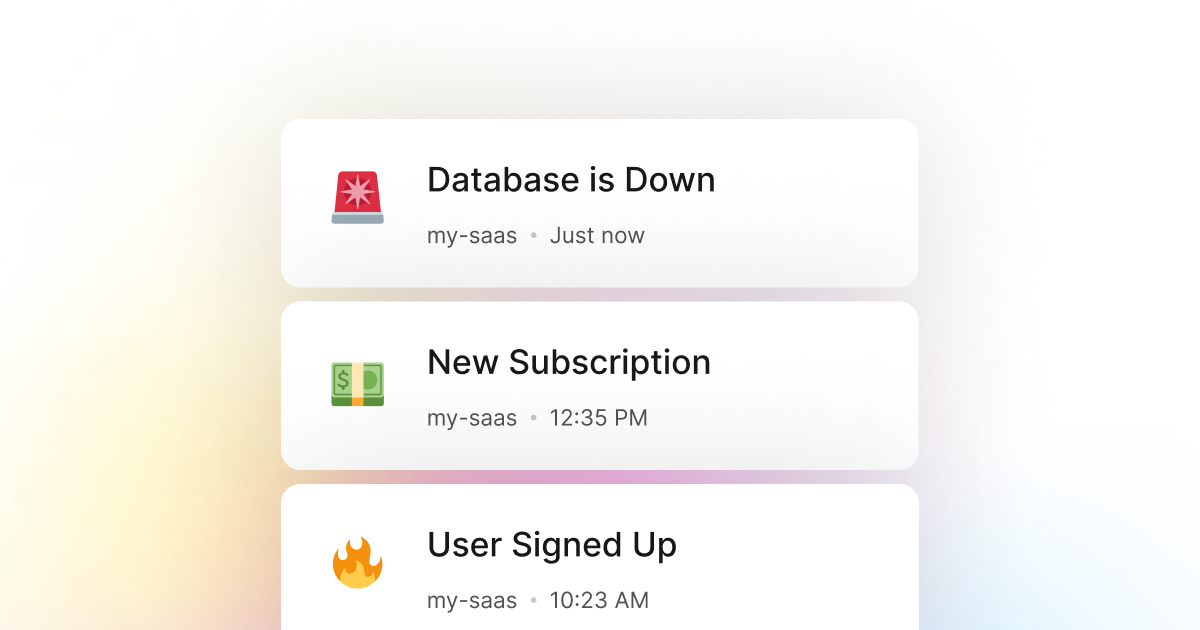Almost every Java application requires some data persistence. In a good number of cases, we can go by using a simple JSON, CSV, or even a text file to store our data. However, in most cases, we need a more robust solution that can handle a large amount of data and many requests and allow us to perform complex queries.
This is where databases come in. Databases are a great way to store and retrieve data in a structured form. They are also a great way to perform complex queries and scale our application. However, databases can be a complex topic and can be challenging to set up and maintain.
One of the most common problems with databases is that they can go down and become unavailable for various reasons. As a consequence, our Java application will fail to work correctly and will not be able to retrieve or store data.
In such cases, it's essential to monitor your database activity and notify you and your team when something is wrong. This way, you can take immediate action and fix the problem before it becomes a significant issue.
Fortunately, LogSnag is an excellent tool for this problem as it trivializes tracking events in your Java application and monitoring database outages. With LogSnag, you can easily track your database outages in real-time and notify you and your entire team when something goes wrong.
Setting up LogSnag
- Sign up for a free LogSnag account.
- Create your first project from the dashboard.
- Head to settings and copy your API token.
Java code snippets
Use the following code snippet to track your database outages with LogSnag. Please don't forget to replace the YOUR_API_TOKEN with your API token and update the project and channel names.
Using Java with OkHttp
Using Java with Unirest
Java integration details
LogSnag is a powerful real-time event tracking tool that works seamlessly with Java applications. It provides a number of features such as real-time event tracking, cross-platform push notifications, event filtering, user and product journeys, charts and analytics, and much more.
By being a use-case agnostic event tracking tool, LogSnag allows you to track any event in your Java applications in any way you want. You can track your database outages, system status, and even user activity in real-time.
Other use-cases for LogSnag
- Monitor your CI/CD build status for your Java application
- Monitor your CPU usage in your Java application
- Monitor high disk usage in your Java application
- Monitor when a user changes their email address in your Java application
- Monitor failed logins in your Java application
- Monitor failed payments for your Java application
- Monitor memory usage in your Java application
- Monitor MySQL downtime in your Java application
- Monitor when a new feature is used in your Java application
- Monitor your Postgres downtime in your Java application
- Monitor Redis downtime in your Java application
- Monitor suspicious activity in your Java application
- Monitor when a user exceeds the usage limit for your Java service
- Monitor when a user is being rate limited in your Java application
- Get a notification when your Java code is done executing
- Send push notifications to your phone or desktop using Java
- Track canceled subscriptions in your Java application
- Track your Java cron jobs
- Track when a file is uploaded to your Java application
- Track when a form is submitted to your Java application
- Track payment events via Java
- Track user sign in events in Java
- Track user signup events via Java
- Track waitlist signup events via Java

